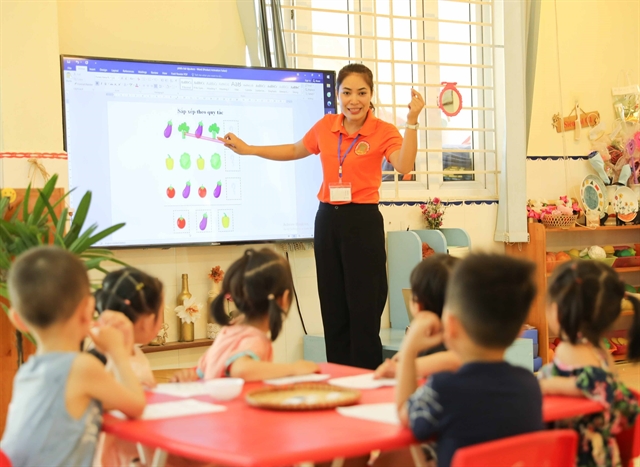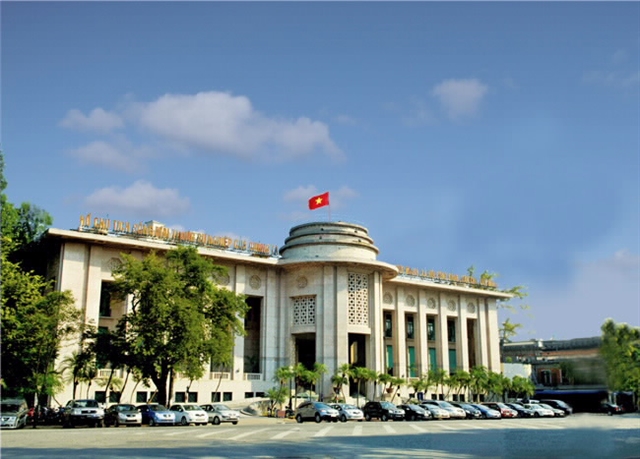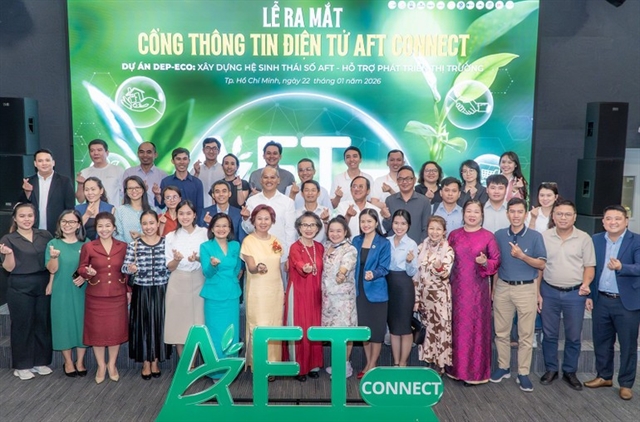 Society
Society


|
| The total estimated budget for the preschool curriculum reform is VNĐ140 billion (US$5.5 million). — VNA/VNS Photo |
HÀ NỘI — The Ministry of Education and Training is gathering public feedback on a draft proposal for a National Assembly resolution to reform the preschool education curriculum.
The proposed changes aim to enhance the quality and effectiveness of early childhood education by 2030, with a long-term vision extending to 2045.
The reform seeks to modernise the preschool curriculum using a competency-based approach, fostering holistic child development in physical health, emotional well-being, intelligence, language skills and aesthetics. It also aims to lay a solid foundation for personality development, ensuring children are well-prepared for first grade while instilling core Vietnamese values.
To achieve these objectives, the ministry has outlined four major reforms, namely a competency-based approach focused on social-emotional development; a rights-based approach ensuring quality, equity, inclusion, fairness and respect for individual differences; greater autonomy for educational institutions and teachers in developing preschool curricula; and regulations on daily activities to align with children's developmental needs while ensuring appropriate working conditions for preschool educators, in line with the Labour Law.
While introducing new elements, the revised curriculum will retain the core principles of the existing programme, including a child-centred approach, active learning and communication skills development.
It will also incorporate modern educational methods, personalise the learning experience and encourage greater family and community involvement in early childhood education.
The reform plan will be implemented in two phases.
Between 2025 and 2028, preschool managers and teachers will undergo training, and the new curriculum will be piloted in selected preschools over three academic years, starting this autumn and ending in spring 2028.
This phase will also include an independent evaluation of the pilot programme.
From 2029 to 2030, the curriculum will be finalised and officially approved, followed by nationwide implementation starting in the 2029-2030 academic year.
The total estimated budget for the preschool curriculum reform is VNĐ140 billion (US$5.5 million).
The largest portion, VNĐ75 billion, will be allocated for piloting and implementing the programme.
Developing and reviewing the new curriculum will cost VNĐ20 billion, while VNĐ15 billion is set aside for producing and distributing instructional materials during the pilot phase.
Training for preschool managers and teachers will be funded with VNĐ30 billion.
Funding for staff salaries and professional development will be covered under a separate project focused on teacher and administrator training for preschool and general education from 2026 to 2030.
Infrastructure improvements will be financed through the Preschool and General Education Infrastructure Enhancement Programme through 2030.
The draft resolution is expected to be submitted to the 15th National Assembly for discussion and approval in October 2025. If approved, it will be enacted following a single-session review process. — VNS




